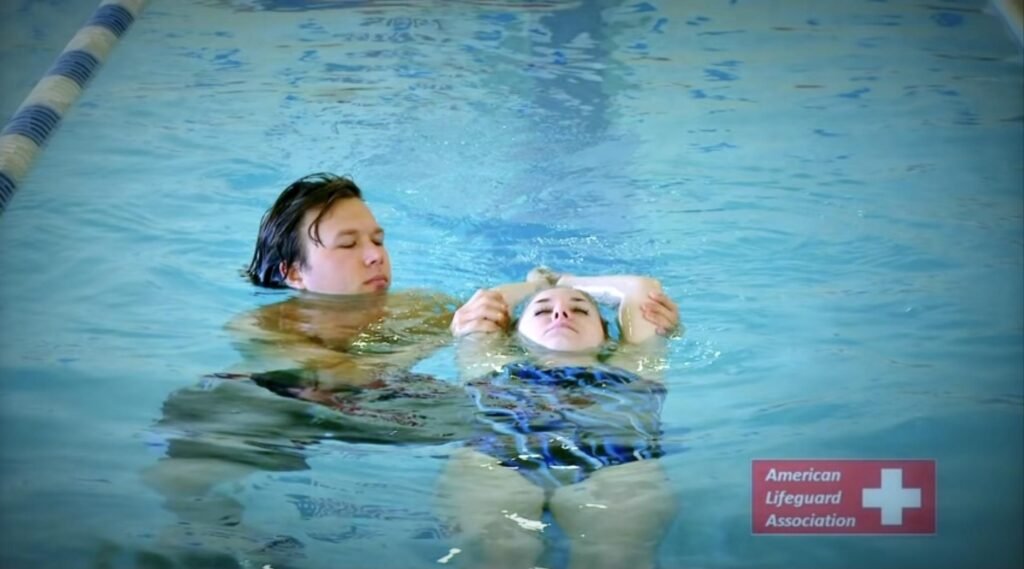When it comes to lifeguarding, the ability to respond quickly and effectively can mean the difference between life and death. That’s why maintaining your lifeguard certification is crucial. For lifeguards in the USA, staying current with recertification requirements ensures that you are prepared to handle emergencies and keep swimmers safe.
In this blog post, we’ll explore the importance of lifeguard recertification, where you can find courses near you, and what to expect from the American Lifeguard Association. Whether you’re a seasoned lifeguard or new to the role, this guide is designed to help you stay informed and ready for action.
Why Lifeguard Recertification Matters
Ensuring Up-to-Date Skills
Lifeguard techniques and safety protocols are constantly evolving. Recertification helps ensure that you are aware of the latest methods and can apply them effectively. This is particularly important for CPR and first aid, as guidelines can change based on new research.
Legal and Job Requirements
Many employers require lifeguards to maintain current certifications. Without it, you might not be eligible to work. Additionally, some states have legal requirements for lifeguards to be recertified at regular intervals to ensure public safety.
Building Confidence and Competence
Regular training boosts your confidence and competence in emergency situations. Knowing that you are well-prepared allows you to perform your duties more effectively, ensuring a safer environment for everyone.
Finding Lifeguard Recertification Near Me
Local Aquatic Centers
Many local aquatic centers offer lifeguard recertification courses. These centers are often affiliated with national organizations and provide certified training that meets industry standards.
YMCA and Community Pools
YMCA branches and community pools frequently host recertification courses. These locations are convenient and usually offer flexible scheduling options to accommodate busy lifeguards.
Online Resources
In today’s digital age, you can also find online resources search lifeguard recertification near me to assist with your recertification. While practical skills must be assessed in person, many theoretical components can be studied online, making it easier to fit into your schedule.
American Lifeguard Association
About the Association
The American Lifeguard Association (ALA) is a leading organization dedicated to promoting water safety and lifeguard training. They offer comprehensive recertification programs that cover all essential aspects of lifeguarding.
Course Offerings
ALA offers a variety of courses, including CPR, first aid, and water rescue techniques. Their recertification courses are designed to update your skills and knowledge, ensuring you remain an effective lifeguard.
Certification Process
To get recertified through ALA, you will need to complete both theoretical and practical assessments. This ensures that you have a thorough understanding of lifeguard duties and can perform them proficiently in real-life situations.
What to Expect from a Recertification Course
Course Duration
Recertification courses typically last one to two days, depending on the provider and the specific requirements. This allows for a comprehensive review of essential skills and knowledge.
Practical Assessments
Expect to participate in hands-on training sessions. These will test your ability to perform CPR, first aid, and water rescues. Practical assessments ensure that you can apply your skills effectively in emergency situations.
Written Exams
In addition to practical assessments, you will likely need to pass a written exam. This tests your understanding of lifeguard protocols, safety procedures, and emergency response techniques.
Benefits of Lifeguard Recertification
Enhanced Safety
Staying up-to-date with recertification ensures that you can provide the highest level of safety for swimmers. It prepares you to handle a wide range of emergencies effectively.
Career Advancement
Maintaining your certification can open up opportunities for career advancement. Some higher-level positions require advanced certifications that build on the basics of lifeguarding.
Personal Growth
Recertification isn’t just about meeting job requirements; it’s also about personal growth. Improving your skills and knowledge can be incredibly rewarding and fulfilling.
Tips for Successful Recertification
Be Prepared
Before attending your recertification course, review your previous training materials. Being well-prepared will help you pass assessments more easily.
Stay Physically Fit
Lifeguarding is a physically demanding job. Maintain your fitness levels to ensure you can perform rescues and other duties effectively.
Engage with Instructors
Take advantage of the expertise of your instructors. Ask questions, seek feedback, and actively participate in training sessions to get the most out of your recertification.
Common Challenges and Solutions
Time Management
Finding time for recertification can be challenging, especially if you have a busy schedule. Look for courses that offer flexible timings or online components to ease the process.
Cost Concerns
Recertification courses can be expensive. Some employers may offer financial assistance or reimbursements, so check with your employer before paying out-of-pocket.
Staying Motivated
It can be hard to stay motivated, especially if you’ve been lifeguarding for a long time. Remember the importance of your role and the lives you protect to keep yourself motivated.
Lifeguard Recertification Myths
“Once Certified, Always Certified”
Some people believe that once they are certified, they never need to recertify. This is a dangerous myth. Lifeguard skills need regular updates to remain effective.
“Recertification is Just a Formality”
Another common myth is that recertification is just a formality. In reality, it is a vital process that ensures lifeguards are equipped with the latest skills and knowledge.
“Online Courses Are Sufficient”
While online courses are convenient, they cannot replace the hands-on training required for lifeguard recertification. Practical skills need to be assessed in person.
Read Also: Migraine Headache Explained: What You Need
Final Opinion
Lifeguard recertification is more than just a requirement; it is a commitment to safety, professionalism, and personal growth. By staying current with your certification, you ensure that you are prepared to handle any emergency that comes your way. Whether you find a course the American Lifeguard Association, the key is to stay engaged and dedicated to your role. Take the first step today and look for recertification courses near you. Your future self—and the swimmers you protect—will thank you.



More Stories
PCD Pharma Franchise in Uttar Pradesh – A Lucrative Business
Why Skin Care Mistakes Can Lead to Long-Term Damage
Top PCD Pharma Companies in Karnataka